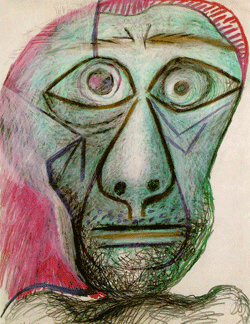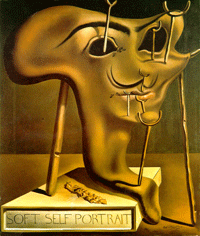Final Exam
The final exam will be in 3 parts, counting respectively 20%, 40%, and 40%.
Part I. Warm up (20%)
Identify (briefly) 10 of the following items. Then use one complete sentence to explain each item further.
Examples.
1. the bond woman
2. state of nature
3. Prodigal Son
4. Mrs. Jewkes
4. pear tree
5. allegory
Part II. Paraphrase and close analysis (40%)
Choose one of the following quotations and ---
1. Write a careful paraphrase of it.
2. List the wordsor phrases that you think require attention.
3. Analyze the quotation, paying special attention to the terms you listed.
"You were turning me around to look at myself, for I had placed myself behind my own back, refusing to see my self”
The quotations will be longer.

Part III. Essay (40%)
Choose one of the following essay topics to make and develop a claim. Refer to specific details to support what you have to say.
1. “Bodily desire, like a morass, and adolescent sex welling up within me exuded mists which clouded over and obscured my heart so that I could not distinguish the clear light of true love from the mark of lust. . . . I had been deafened by the clank of my chains, the fetters of the death which was my due to punish the pride of my soul ” (2). Augustine, Confessions.
In his self-examination, Augustine identifies bodily desire as a hindrance to the discovery of truth. Discuss the significance of the body in two of the three fictions we have read: TPP, RC, and Pamela. Underline the point you think is most important in your essay.
2. Descartes uses self-report as a form of philosophy. Why is self-report important to his project? Do you see any similarities between the form of self report used in philosophy and the form of self-report that Richardson invents in Pamela? Discuss and draw on TPP and RC as useful.
3. In Book VIII, Augustine says, "My inner self was a house divided against itself" (VIII, 8). Pamela says, "I think I was loth to leave the House" (244);"Oh! my dear Parents, forgive me! but I found to my Grief before, that my Heart was too partial in his Favour" (248); and "O my exulting Heart! how it throbs in my Bosom, as if it would reproach me for so lately upbraiding it for giving way to the Love of so dear a Gentleman" (251). To what extent can Pamela's situation be analyzed with the concept of the "divided self"? And to what extent is Pamela'ss experience comparable to Augustine's? Discuss, drawing on RC for comparison.
4. In The Leviathan, Hobbes says, "NATURE hath made men so equal in the faculties of body and mind as that, though there be found one man sometimes manifestly stronger in body or of quicker mind than another, yet when all is reckoned together the difference between man and man is not so considerable as that one man can thereupon claim to himself any benefit to which another may not pretend as well as he. " In Hobbes, complete equality is a problem. Discuss Robinson Crusoe and Pamela under the heading "the problem of equality." Or, phrased a different way, to what extent is equality an issue or a problem in these fictions?
5. Pamela understands her experience as a case, and she continually has a case of conscience. Could you use the "case of conscience" to analyze Robinson Crusoe? Compare the two works' use of moral conflict? Can the conflict that arises in these works be explained by any of the non-fiction works we have read?
